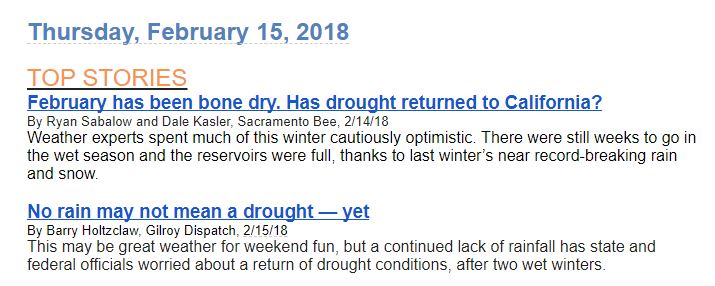Tom Philp had a great piece in Water Deeply last week about the language we use:
Water policy becoming a prisoner of its own limited vocabulary, particularly when it comes to the weather. Here is a case that “drought” and “normal” belong in the dustbin of history, for their overuse can lead to the wrong conversation. These words are not so sinister as to be banned from the dictionary. But they tend to miss the mark as to what seems to be happening with our weather this century.
I was thinking about this as I read my morning California Department of Water Resources daily news links:

Drought Headlines
“Drought” is becoming an increasingly unhelpful word, or, as Tom put it,
Meanwhile, we all watch the weather. We all wonder what about the future. And we converse about it in yesteryear’s language.

He obviously never read the old business school adage, “Don’t bring up a problem unless you have a solution.” What words shall we use then? Drought is normal and recurring part of the West’s climate. They strike me as perfectly good and useful words.
If you’re talking about normal as always having plenty of water, you need a history lesson. Look at the old tree rings and you’ll see that 30 to 40 years of sustained drought happened in the West, again and again in the historical record. So that’s “normal” in the dictionary sense: regular, usual, typical; ordinary.
If only someone had written a book about this stuff!